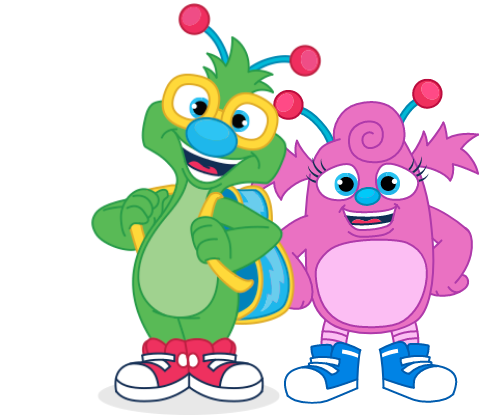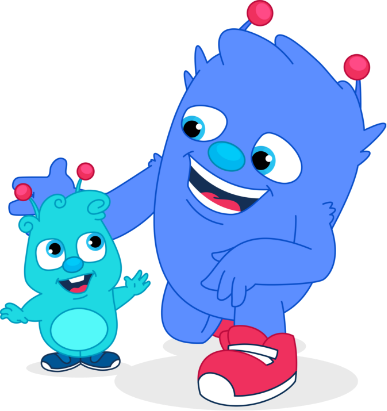December 18, 2017
Guest Post: The Magic in Music
 Let’s give a warm Doodle Welcome to today’s guest blogger, Megan Coltonic, Executive Director of Bloom Creative Arts and Founder of the Music Rocks program. Earlier this year, Doodle Bugs! partnered with Bloom Creative Arts to bring Music Rocks, an interactive and engaging music experience that encourages kids to sing, dance, and create their own music, to our New York and Pennsylvania centers. We look forward to being able to bring this program to our Florida centers in the future! Without further ado, take it away, Megan!
Let’s give a warm Doodle Welcome to today’s guest blogger, Megan Coltonic, Executive Director of Bloom Creative Arts and Founder of the Music Rocks program. Earlier this year, Doodle Bugs! partnered with Bloom Creative Arts to bring Music Rocks, an interactive and engaging music experience that encourages kids to sing, dance, and create their own music, to our New York and Pennsylvania centers. We look forward to being able to bring this program to our Florida centers in the future! Without further ado, take it away, Megan!
Hello, Doodle Community! It’s the time of year where everywhere you turn someone is talking about MAGIC. The Magic of the season. The magic in our children’s eyes. The magic in the moment. And for me…the magic in the music. Today I sang with a lady who was 93 years old. I hummed a tune and she began filling in the words “Suzy wants a pair of skates. Tommy wants a sled”. Her magic number was 90. As someone who struggles with dementia she was instantly transported back to a special occasion when she was 3 years old. 90 years ago. There was magic in her eyes as she retold the story of that special day. How is it that someone who cannot remember what she had for lunch, can remember a day 90 years ago with perfect detail? Music.
Yesterday I sang with an 18 month old who was born significantly prematurely. She struggles with motor and verbal skills, and has just started to speak- one word here and there. Each week we sing the same greeting song and she smiles and claps. Her magic number was 10. The 10th week she heard that greeting song there was magic in her eyes. She was ANTICIPATING. I could see it. I sang…
“Hey Hey Rockers, it’s time for music today!”
(Her excitement is building)
“So let’s get busy singing, say music rocks today.”
(She raises her arm emphatically as she yells)
“MUSIC ROCKS!”
Yes, I did squeal at this moment! A two word phrase, perfectly timed and executed by this happy and confident child. In this moment she practiced so many skills. Verbal Expression. Impulse Control. Multi-Tasking. Volume Control. Following Directives. I could go on. How could she achieve such a feat? Music.
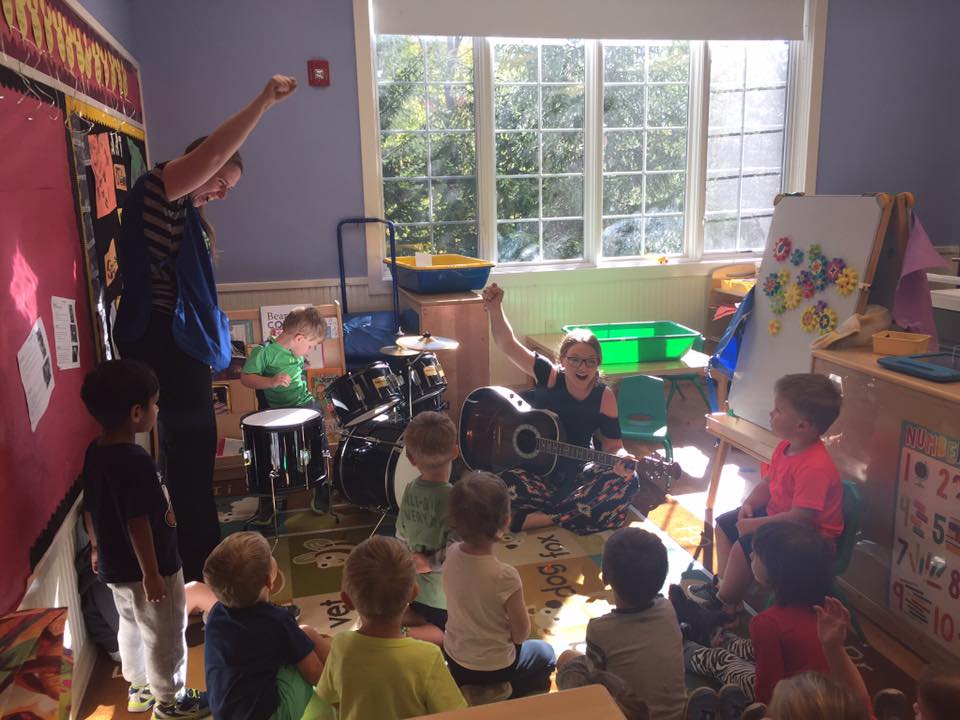
As a music therapist I have the pleasure of seeing this sort of magic on a daily basis. And much like a wizard, I understand how it works. It all begins with the brain. That wonderful, complicated, awe inspiring organ that organizes our body. Auditory processing is housed in the cerebrum. However, listening to, playing, reading and creating music involves practically every part of the brain. In the book This Is Your Brain on Music, Daniel J. Levitin explains that listening to music first involves subcortical structures like cochlear nuclei, the brainstem, and the cerebellum. It then moves up to auditory cortices on both sides of the brain. And when you hear music, listening also involves the memory centers in the brain, such as the hippocampus and lowest parts of the frontal lobe. Tapping along with the music gets your cerebellum involved. Reading music involves the visual cortex, and listening to or recalling lyrics will involve language centers in the temporal and frontal lobes.
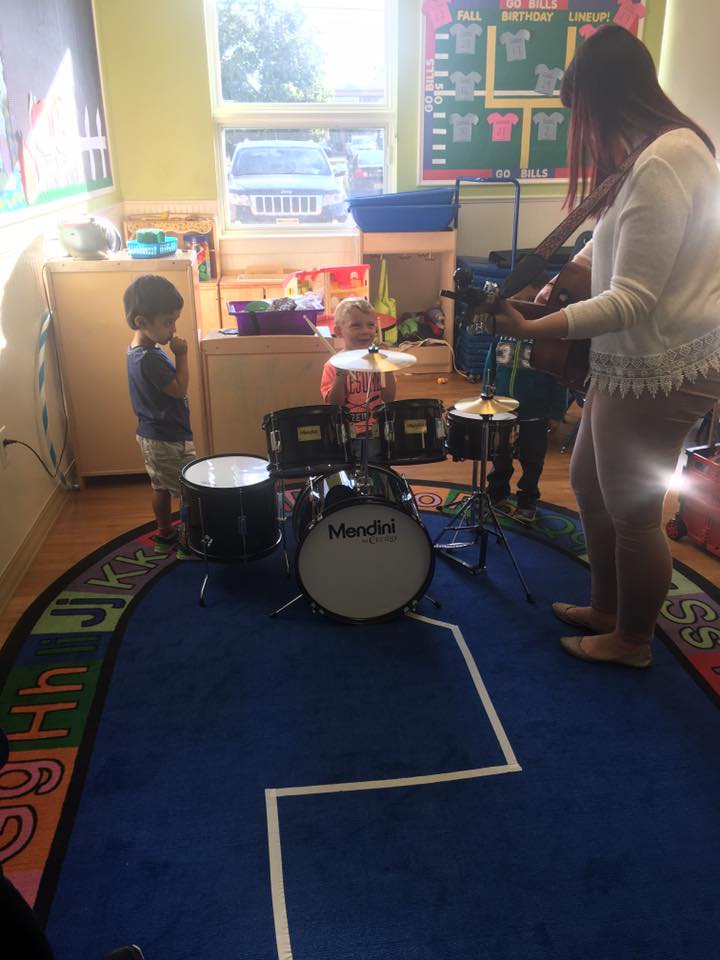
Music is innate. It is non-threatening, natural, and motivating. Music can soothe and music can excite. It can elicit emotions and stir memories. It is also a powerful tool for early childhood development. We understand that stimulating these areas of the brain increases brain development, and this development is most critical around the age of 4. Let’s break this down with what your child is learning in music rocks this month and why it is important.
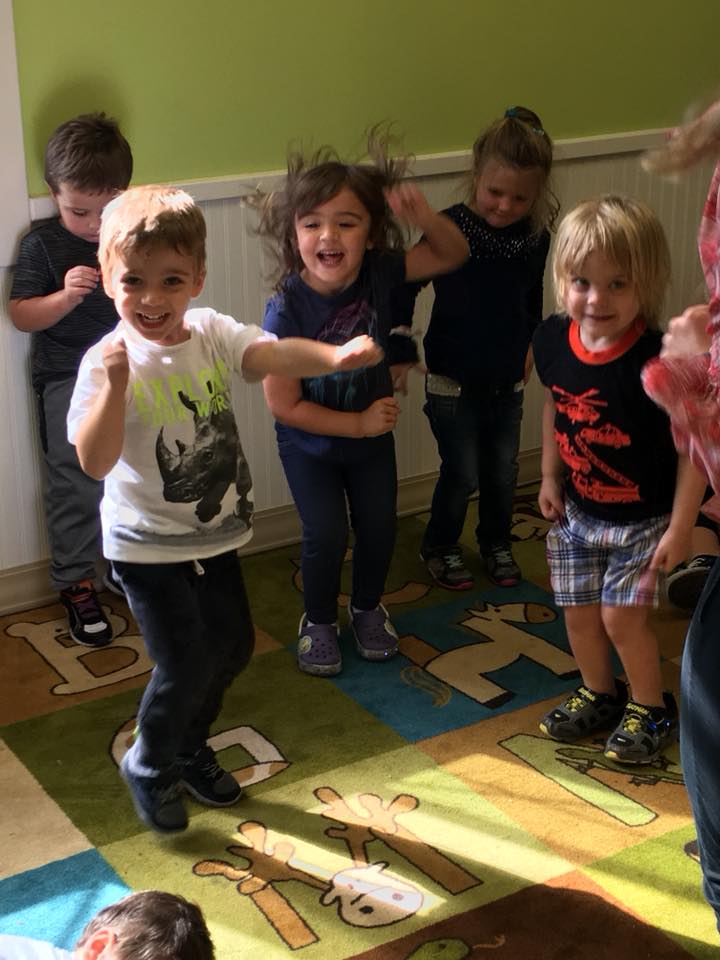
Rockers will be manipulating the keyboard/piano this month. They will explore the colors on the keyboard and hypothesis on patterns they find. From this pattern recognition they will learn how to find C in a way that makes sense to them, because they followed their own intuition. Most Rockers will note that the keys are either black or white, and that the black keys have a pattern they’re grouped in 2 or 3. From there they will learn a song that prompts them to play the 2 black keys and find C with their thumb. Skills they practice during this experience: Impulse Control (prefrontal cortex) Pattern recognition (ventrolateral prefrontal cortex and parietal cortex) Color recognition (occipital lobe) Turn Taking (Frontal Lobe and Temporal Lobe) Fine Motor and Coordination Skills (Cerbellum).
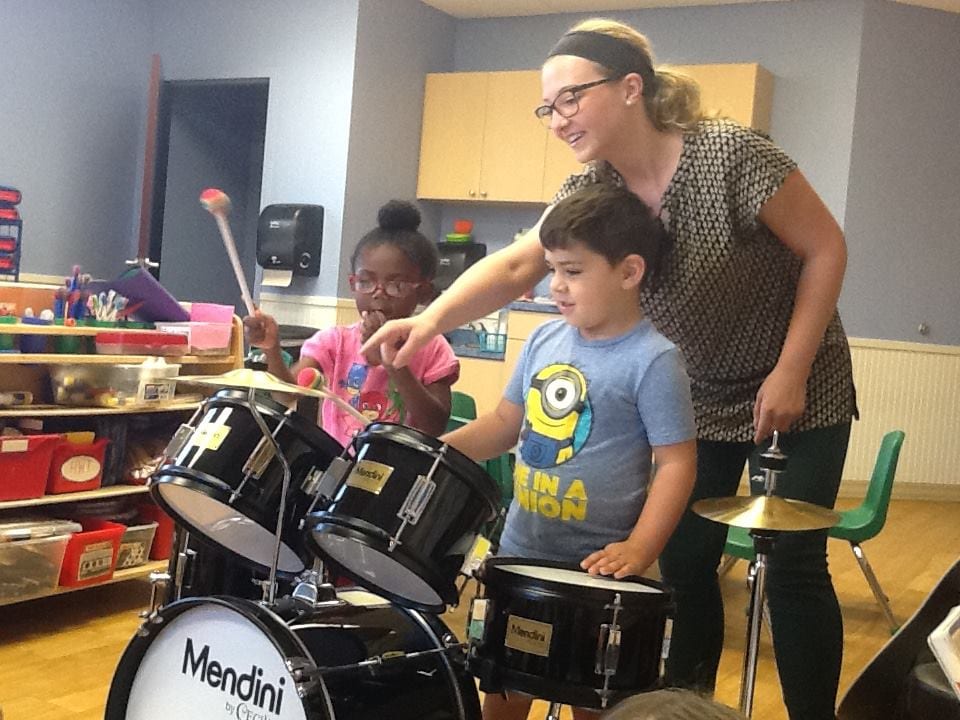
Rocker’s will also be learning a song about being polite. They will participate in social discussion that encourages unique responses of ways they can be polite (say please, thank you, excuse me, etc.) Rocker’s will sing their song using egg shakers for the chorus only. Skills they practice during this experience: Impulse Control-waiting for the chorus to play egg shakers (prefrontal cortex) Listening (temporal and frontal lobes) Thinking initiation (frontal lobe) Rhythmical playing (Cerebellum)
Rocker’s will learn a dance”The Happy Dance” that incorporates repetitive patterns and encourages gross motor movement. Skills they practice during this experience: Impulse Control-Only doing the dance moves paired with the pattern (prefontal cortex) Bilateral Coordination- Crossing their body and achieving movements with many body parts at once (Cerbellum) Remembering the pattern (Frontal lobe) Maintaining appropriate space from peers (Parietal lobe).
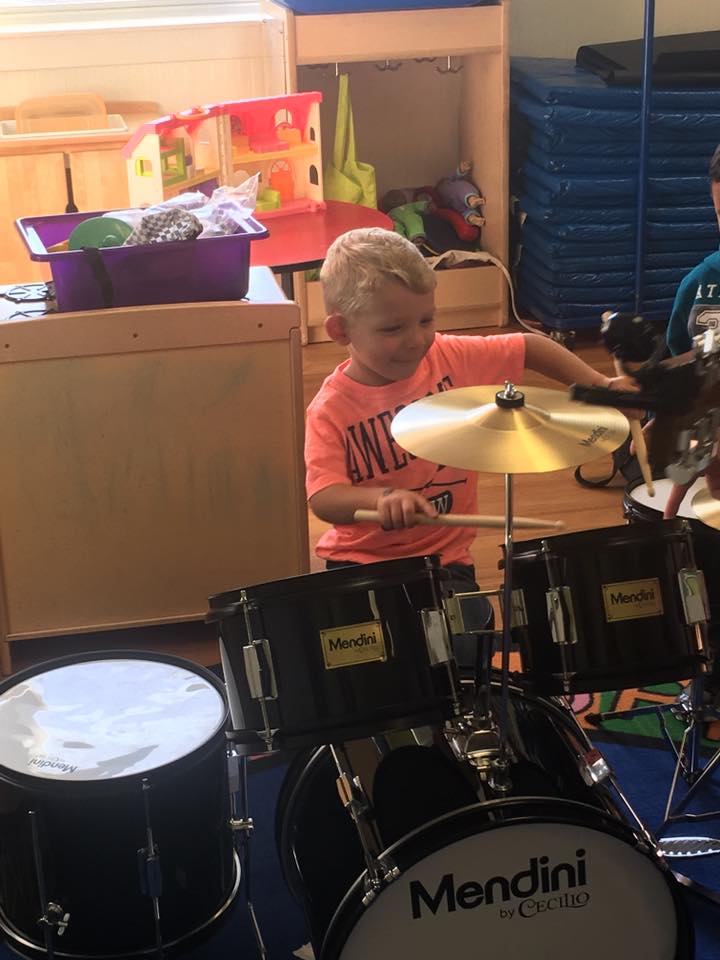
Every person started their journey in education, and ultimately their career with music. The Alphabet song is a natural way for children to learn an abstract concept. When we introduce concepts through music we exercise more areas of the brain than through speech alone, and the more we exercise that area of the brain the easier it becomes to access that information when we need it another time. When we practice a rest or a stop in music we are practicing impulse control. Because music is fun and non-threatening we like to do “the stop”. This area of the brain gets a lot of stimulation. Therefore Practicing impulse control through music helps your child to stop when prompted in other areas of their life. Pretty great huh? Magical. It has also been found that keeping a beat assists with reading and language skills. Because hearing sounds of speech and associating them with the letters comprising written words is crucial to learning to read, researchers reasoned that the association between reading and beat synchronization likely has a common basis in the auditory system.
Most importantly we are having fun when we are doing it! Music is a blast! It stimulates brain development, and practices skills that relate to other environments and circumstances. When we say “MUSIC ROCKS”, we mean it.

 1.866.668.5111
1.866.668.5111  6:30 am - 6:00 pm
6:30 am - 6:00 pm 
 Give a Happy High Five!
Give a Happy High Five!

